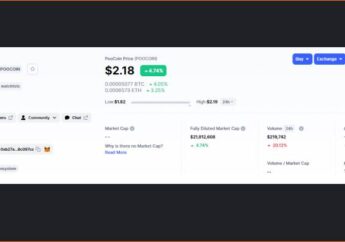Bitcoin Trading: How to Invest in Bitcoin
by Abdul Aziz Mondal Investing Published on: 24 June 2021 Last Updated on: 28 December 2024

Should you invest in cryptocurrencies or trade them? Trading and investing are two of the most prevalent methods to use bitcoin. These may be unfamiliar terms to some, whereas others may interpret them the same way. Investing and trading are both vital aspects of the bitcoin industry, but there are some key distinctions.
Humans have a keen sense of what is valuable. It’s as though our DNA contains a sixth sense. We’ve been bartering, exchanging, and making agreements to get what we need since we could walk, talk, and communicate. The barter system was the earliest form of this. Before the invention of actual money, humans obtained what they desired or required by exchanging it for something they already had. Humans were already aware that each item had its value.
They also understood that the worth of an item fluctuated over time based on what it was, how many people required it, and how challenging it would be to locate it again. They also desired to be in a stronger position following the trade than they had been previously. Everything that is bought and sold nowadays follows the same set of regulations.
Investing and trading rely on humanity’s ability to figure out what is valuable and how it might become more profitable in the future. The purpose of both investment and trading in cryptocurrencies is to sell the cryptocurrency for more than you paid for it. Despite their common purpose, the two techniques use radically distinct approaches. Find your cryptocurrency approach with the review on the AAAFX brokerage company.
Bitcoin Investment

Investing, contrary to popular belief, is not a quick method to become wealthy. Investments, not short-term earnings, build wealth. When someone buys bitcoins in the hopes of seeing their value rise over time, they are investing. When someone invests in cryptocurrencies, they have no intention of using or spending it anytime soon.
Investors aim to make a steady profit by purchasing and retaining assets for a long time. This is referred to as holding in the crypto world. Because serious investors don’t pay close attention to news or current events in the markets daily, bitcoin investment is atypical. Investors are willing to hold on to their bitcoin for multiple price cycles. This means that if prices fall, investors may be hesitant to sell.
The theory underlying this is that most assets’ prices tend to rise over time. Cryptocurrency investors hold tokens for two main reasons. The first is that early investors reap the most significant benefits from their investments.
This means that people who buy ahead of the crowd pay cheaper prices and make larger profits when they sell. The second reason is that they anticipate the worth of Bitcoin and other cryptocurrencies will continue to rise as they become more widely accepted in mainstream banking and as a form of payment by well-known companies.
Short-term price changes have little impact on investment. However, investors must consider the dangers involved carefully. There is a danger that the initial investment may not grow in value or will even be lost, as with any financial methods.
Best Way to Invest
The world’s most successful investors frequently avoid attempting to “time the market,” preferring instead to make smaller, more long-term bets. The good news is that cryptocurrency is no exception.
Warren Buffett, the investing giant, offers a piece of advice for aspiring investors: It’s not about when you purchase; it’s about how often you buy. This is where dollar-cost averaging (DCA) comes into play. DCA is one of the most dependable investment techniques of all time, and it can be modified to fit any budget, from the most frugal to the most affluent.
DCA is simple to understand and use, making it ideal for first-time crypto investors. All you must do is figure out how much money you must invest and then buy in small amounts at regular intervals.
Pros:
- Investing, not short-term earnings, builds wealth over time.
- Moreover, because short-term price fluctuations are unimportant, investment is easy to handle.
- As a result, there are fewer taxable events.
Cons:
- Investors play the long game, which isn’t for the faint of heart.
- Unfortunately, the reward isn’t always worth the wait.
- To know what to invest in, you must have some knowledge.
Bitcoin Trading
For most traders, the goal is to amass wealth quickly. While investing takes time and patience, trading is a high-octane, fast-paced way to generate money. Trading is usually done for a short to medium period. Traders monitor news, events, and economic activity around the clock for signs that Bitcoin’s price might fluctuate. Traders face a higher risk than bitcoin investors due to the volatile nature of the cryptocurrency markets.
Bitcoin trading aims to buy bitcoin at a cheap price and sell it at a high price. To put it another way, paying a low cost for bitcoin means exchanging a small amount of paper money, such as dollars or euros, for a large amount of bitcoin. Conversely, when you sell bitcoin for a high price, you receive a large sum of fiat currency in exchange for a small number of bitcoins.
Most trades are medium-sized; however, larger trades may occur. With its driving force and the volatility, it encounters as it settles into the global market, bitcoin trading and investing adds another element to currency trading. The significant fluctuations (ups and downs) of bitcoin trading provide an opportunity to profit from high yields.
Pros:
- Possibility of making a lot of money in a short amount of time.
- With a bit of amount of money, traders can begin purchasing and selling cryptocurrencies.
- Bitcoin trading is available 24×7.
Cons:
- Economic uncertainty increases the likelihood of losing money or not making a profit.
- Therefore, traders must be aware of their risk tolerance.
Conclusion
Investing and trading used to be a closed club reserved for the wealthy. But then came bitcoin, and everything transformed. Now that the globe has Bitcoin, all you need is a computer and internet access to change your financial situation.
Read Also:





































































































